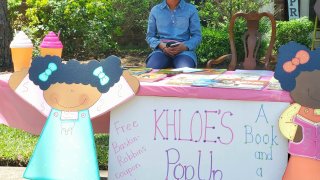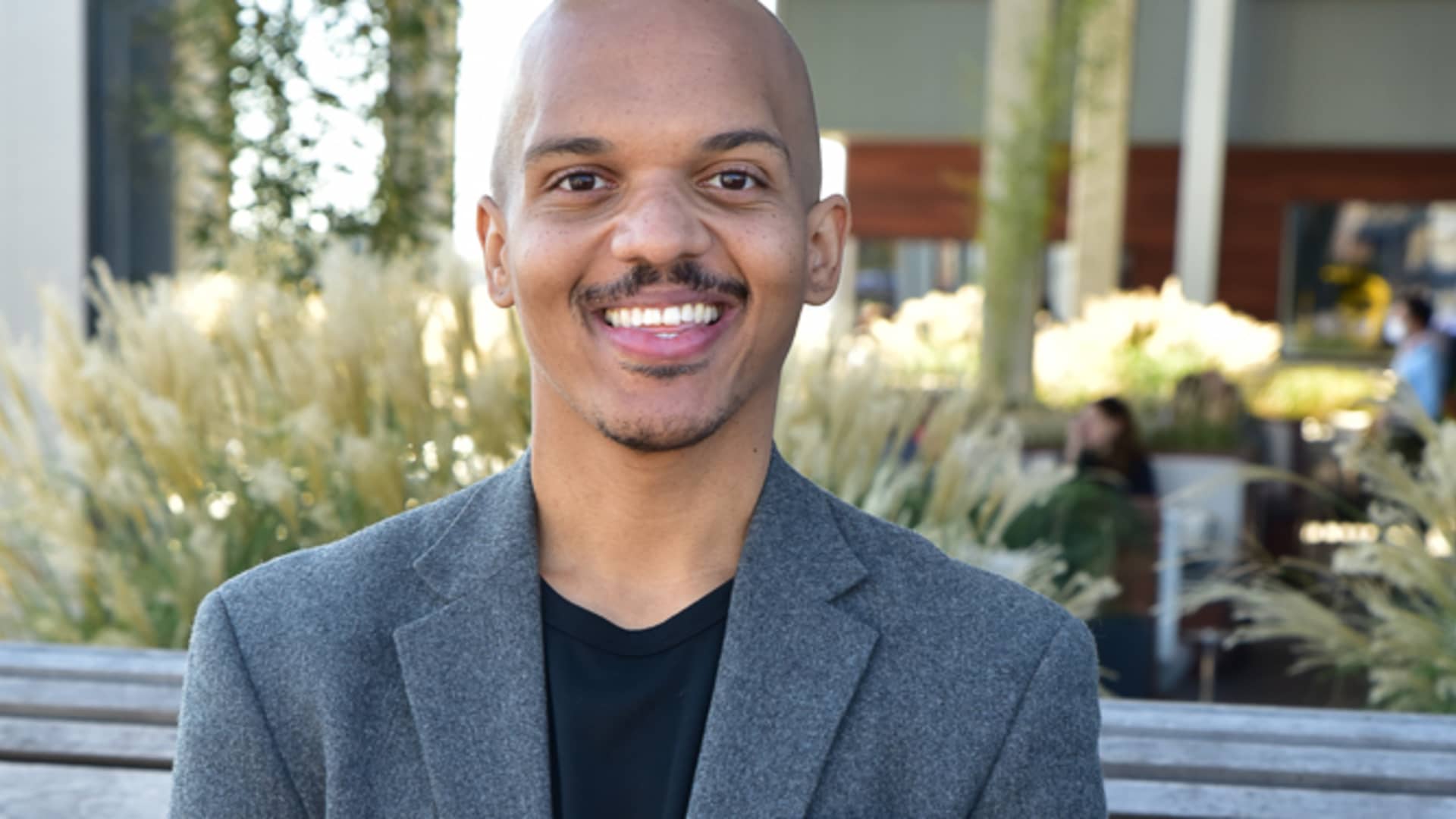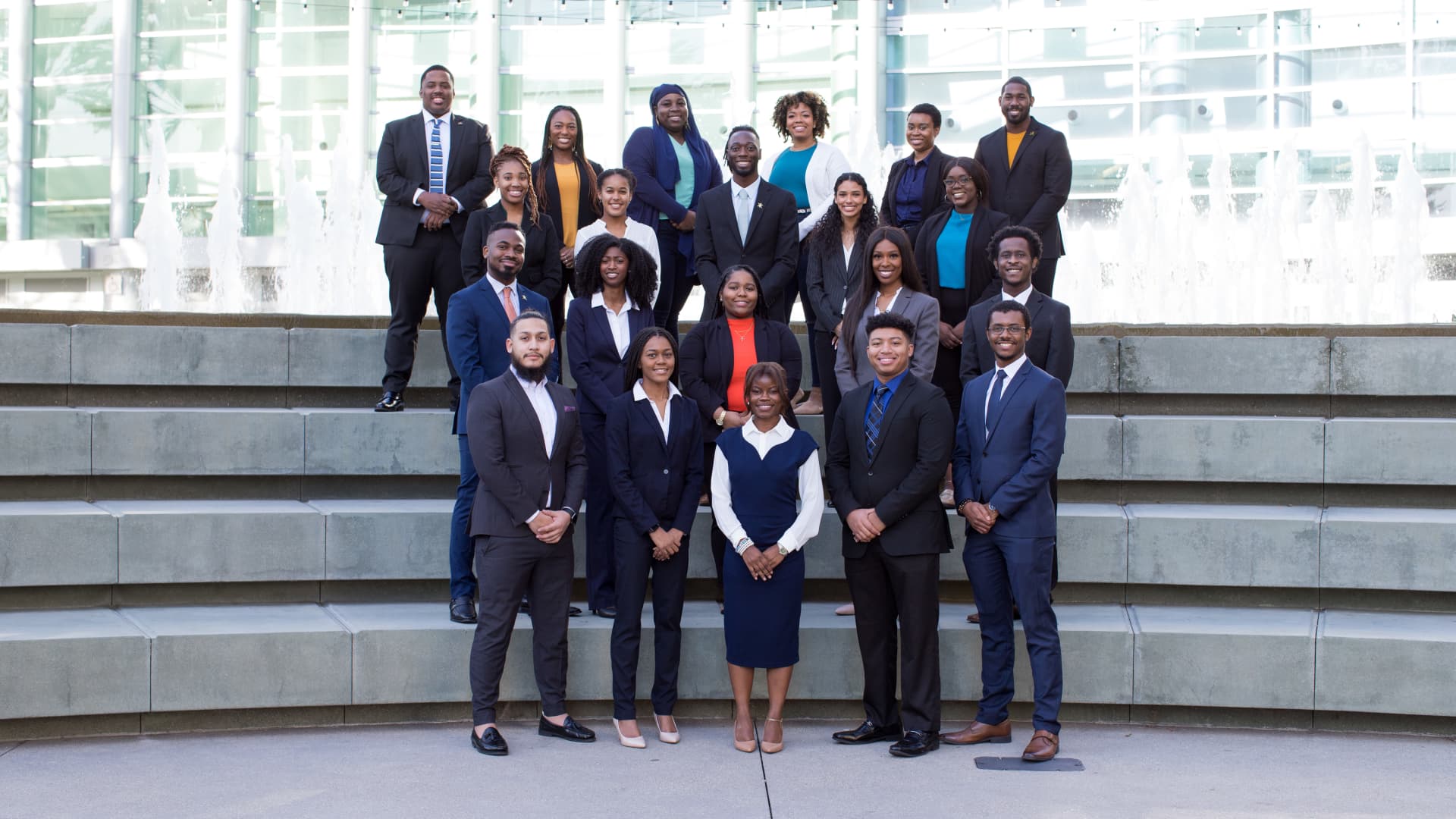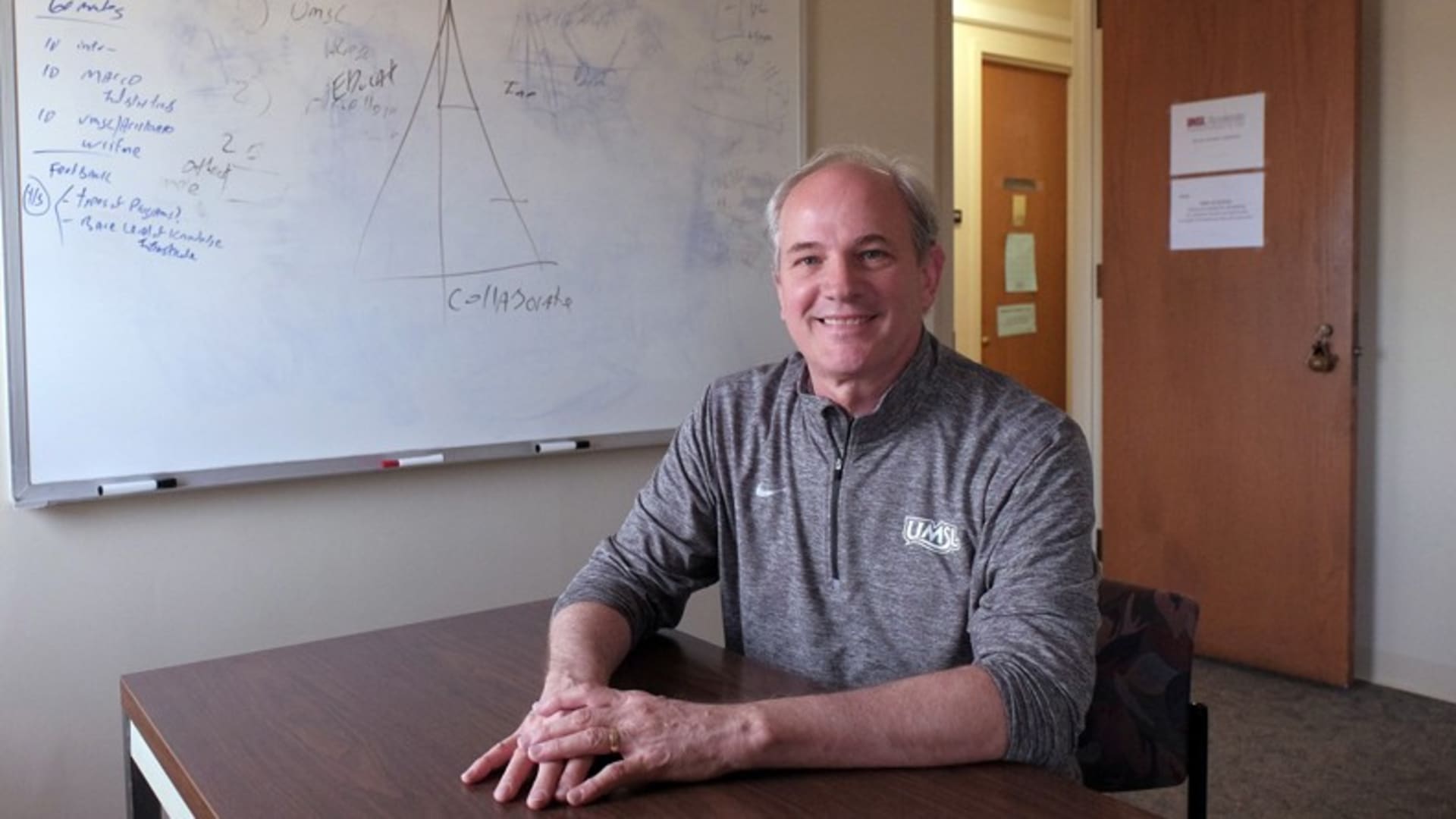
To celebrate Black History Month during February, CNBC + Acorns Invest in You: Ready. Set. Grow. spotlighted everyday Americans investing in neighborhoods, schools and small businesses to create brighter financial futures.
CNBC also asked readers to nominate individuals in their communities making groundbreaking changes. CNBC received hundreds of nominations but could only select five. These are the individuals and organizations chosen as Faces of Change.
Bevon and Elois Joseph — The Greenwood Project
Bevon and Elois Joseph, the husband and wife duo started the non-profit Greenwood Project to create career pathways for Black and Latino students in the financial services industry in 2015. With over 40 years of combined experience in the financial services industry, Elois and Bevon all too often noticed the lack of diversity throughout their careers.
We're making it easier for you to find stories that matter with our new newsletter — The 4Front. Sign up here and get news that is important for you to your inbox.
"I looked around the room, and not many people looked like me," said Bevon.
The Josephs hope that by exposing students to finance careers, it will ultimately enable them to create generational wealth. High school students in the program are encouraged to think about finance before they decide on college majors, and while they are not forced to pursue careers in finance, nearly 80% of graduates currently work in finance.
Money Report
Today, the Greenwood Project partners with 55 firms, with more on the waiting list.
This year, the Greenwood Project announced a new partnership with Citadel and Citadel Securities to expand its summer high school program. With funding from the Chicago-based hedge fund giant, the project will expand to over 60 high school students in Chicago's South and West sides.
Khloe Joiner — A Book and A Smile
Four-year-old Khloe Joiner feared the motorcycle-riding police officer she saw in her hometown of Missouri City, Texas, while riding in a car with her grandmother, Billye Moutra. But Moutra did not want her granddaughter to live in fear of cops, despite the history of police violence against African-Americans. So she set up a meeting between Joiner and Officer Jessica Berry, who had the nice braids that caught Joiner's eye that day in 2016.
Joiner took the $141 in change that she had been saving for a trip to Disneyland to buy more than a hundred books that were then donated to the police department to pass along to children. Thus, A Book and A Smile was born with a mission to help strengthen ties between the community and law enforcement, with books as the currency to help uneasy children during police encounters.
Now 9 years old, Joiner has given away 15,000 books, expanding her reach beyond police departments.
Joiner's goal is to give away a million books because she believes books provide education, a valuable gift that can open doors for other opportunities.
Joiner has her eye on the next goal of 1,000 children's books to teach kids how to save and invest money. Experts say increasing financial literacy can also help close the racial wealth gap, where the average white family has eight times the wealth of the average Black family, according to data gathered by the Federal Reserve.
"We're up to 37 states requiring some form of financial education in K-12, but we're still graduating far too many kids without the tools to manage their financial futures, particularly in low-income areas. So, entrepreneurship is almost required in the pursuit of generational wealth, particularly for the 99% of Americans who don't have a personal financial advisor. That's what Khloe Joiner and the other Faces of Change exemplify: the entrepreneurial courage to create a better path, not just for yourself, but for your family, community, and generations to come," said Kennedy Reynolds, Chief Content & Education Officer at Acorns.
Evin Floyd Robinson — America on Tech

Evin Floyd Robinson got the idea to build America on Tech over a cup of coffee. Robinson was catching up with a colleague, Jessica Santana, and the two realized that the lack of diversity within the technology industry wasn't due to a lack of talent but a lack of access to opportunity.
"Instead of being upset or disheartened by some of the literature and reports that were out there, we decided to be a part of the solution," Robinson told CNBC.
What started as a mentoring program for high school students interested in technology has grown into a bi-coastal organization that has served nearly 4,000 students to date.
AoT searches for schools that need the most help. One of its criteria is that 70% of students must be eligible for free or reduced lunch prices.
All the programs are free for students and funded by fundraising. If a student does not have access to hardware or software, AoT is able to provide students with the technology they need through partnerships with corporations including Blackstone, Nike, FactSet, Citi Bank and NBCUniversal.
According to Robinson, students with an opportunity to compete for high-earning technology jobs can be positioned to make better decisions for themselves and their families, and as a result of more income, have the options of being more entrepreneurial and politically active.
Favour Nerrise — National Society of Black Engineers

Favour Nerrise is an electrical engineering Ph.D. student at Stanford University, currently researching tools, models and methodologies that can help medical professionals better understand how the brain functions. She also has risen from National Society of Black Engineers' local chapter president to her current role as NSBE national chairperson as she leads its effort to increase diversity in the engineering field.
Only 5% of developers, engineers and programmers are Black, according to data from /dev/color, a non-profit that helps companies find Black tech talent. Nerrise says she is the only Black woman in her 160-person electrical engineering Ph.D. cohort. But she and NSBE are hoping to increase these numbers through Game Change 2025, a strategic plan that Nerrise implemented to see 10,000 Black engineers graduate annually by 2025.
But to meet the goal of 10,000 Black engineering graduates, NBSE has had to make significant changes to its approach and do outreach with younger students. Children as young as third grade are now being exposed to NBSE, which Nerrise says was a necessity. "And we might even need to go all the way down to like, kindergarten," she says, "because we found that if the kids weren't exposed early, Black and brown students typically were at a disadvantage of catching up in mathematics and science."
Dan Lauer — UMSL Accelerate

By all measures, Dan Lauer had a successful career. The banker turned entrepreneur created the best-selling children's toy Waterbabies, selling over 25 million of the realistic dolls.
Following his company's success, Lauer wanted to give back to his alma mater, the University of Missouri-St. Louis Business School and empower the entrepreneurs of the surrounding community. Amid the pandemic and together with the university, Lauer launched the Diversity, Equity and Inclusion Accelerator.
A "first-of-its-kind" university-led accelerator in the country, according to the school, Lauer says among the big questions it hopes to answer are: "How do you create generational wealth? How do you fund underrepresented founders?"
Launching in the middle of a pandemic was no easy feat, but it was something that had to be done, said Lauer. "In the summer of '20, there was just a lot of tension in St. Louis about race. And I'd been pitching this well before the pandemic. ... The time was right, we had sponsors … I finally got large corporations to invest ... and I didn't want to wait."
UMSL Accelerate provides $50,000 in non-dilutive capital to founders that make it into the program. Entrepreneurs are also paired up with paid interns from the college, along with support from the university and access to mentors, alumni, and subject matter experts.
Only two years into the accelerator, Lauer said there is proof that start-ups accepted into the program have benefited. Lauer hopes that leveraging the university's resources, the accelerator can increase capital investment, workforce development and founders' wealth. "There's a lot of changing hearts and minds. And I think what the message is, you cannot do this alone."
SIGN UP: Money 101 is an 8-week learning course to financial freedom, delivered weekly to your inbox. For the Spanish version Dinero 101, click here.
CHECK OUT: My 9 streams of income bring in $10,000 a month: Here is my best advice with Acorns+CNBC
Disclosure: NBCUniversal and Comcast Ventures are investors in Acorns. Each of these Face of Changes nominees will receive a $100 investment in an Acorns account.






